Atopic dermatitis, commonly known as eczema, is a chronic autoimmune condition that causes patches of dry, red, itchy or flaky skin. The skin may crack or become scaly. Eczema tends to flare up with certain triggers, including stress, food sensitivities and environmental allergens. Relatively common in children, eczema also affects many adults. In some cases, the symptoms can become so severe that they interfere with your ability to sleep or perform daily activities. Eczema is often linked to asthma and allergies, especially in children. This “allergic triad” is confirmed by modern research, and has long been understood in Five Element acupuncture theory. Eczema may have no direct cure, but engaging in regular self-care practices and seeking alternative treatments such as acupuncture and nutritional therapy may help to relieve uncomfortable symptoms and prevent new outbreaks.
Mechanisms of Atopic Dermatitis
Our skin acts as a moisturizing shield to protect our bodies from irritants, allergens, and bacteria. While the exact cause of eczema remains unknown, some people with eczema possess a gene mutation that impacts the production of filaggrin, a protein responsible for building and maintaining a strong protective skin barrier. If the body cannot produce a sufficient amount of filaggrin, the outer layer of the skin may become dry and susceptible to bacteria and other infections. Additionally, those with eczema often have an immune system that is quick to overreact to certain triggers, resulting in symptoms of inflammation.
Eczema and the Allergic Triad
Many people with eczema also suffer from asthma and allergies. Children with eczema are particularly prone to exhibit symptoms of asthma and allergies in addition to atopic dermatitis. One study indicated that between 50 to 70 percent of children with atopic dermatitis also develop asthma. When this link was studied in mice, it was found that a protein known as thymic stromal lymphopoietin (TSLP), often produced in damaged skin, could trigger asthma symptoms. Researchers concluded that blocking the action of TSLP could reduce and even prevent defects in the skin barrier, which could ultimately stop those with eczema from developing asthma.
Western Medicine’s Approach to Eczema Outbreaks
People with atopic dermatitis are often told to avoid irritating lotions, soaps, and other environmental triggers in order to reduce the likelihood of an outbreak. Sometimes, eliminating common allergens, such as dairy products, shellfish, or wheat may lead to reduction in eczema symptoms. When outbreaks occur, medicated ointments, topical steroids, topical calcineurin inhibitors or even injectables may be used to reduce inflamed, itchy, or painful skin. However, these treatments may cause unwanted side effects, such as cold sores, acne, cataracts, or other unpleasant conditions. Many people with eczema face a cyclical and lasting condition that requires a series of ongoing efforts to manage symptoms and reduce the severity of each outbreak.
Acupuncture for Atopic Dermatitis
People with eczema may wish to explore alternative options for managing outbreak symptoms. Acupuncture treatment sessions are customized to address the unique needs and symptoms of the individual, often providing effective and lasting relief from itchy and irritated skin. According to a 2020 systematic review and meta-analysis regarding the effectiveness and safety of acupuncture for eczema patients, those who received a series of acupuncture treatment sessions reported a significant reduction in the eczema and severity index (EASI) than those who were treated with conventional medicine. While there were several limitations to the majority of these studies, the reviewers concluded that “acupuncture might be an effective treatment capable of reducing itch intensity, and may be more effective than conventional medicine at reducing EASI and improving global symptoms for patients.”
Acupuncture has been shown to reduce skin inflammation and itching through a variety of mechanisms, including reducing mast cell and histamine release, as well as modulating neurotransmitters, cytokines, hormones and other factors that impact autoimmune and allergic response. While more robust and comprehensive studies are needed to solidify these findings, people with atopic dermatitis may wish to seek relief through acupuncture treatment sessions.
If you are experiencing symptoms of eczema, asthma, or allergies in the Portland area and you’re looking for a customized therapeutic approach, call Inner Works Acupuncture today at (503) 227-2127 to schedule an appointment.



